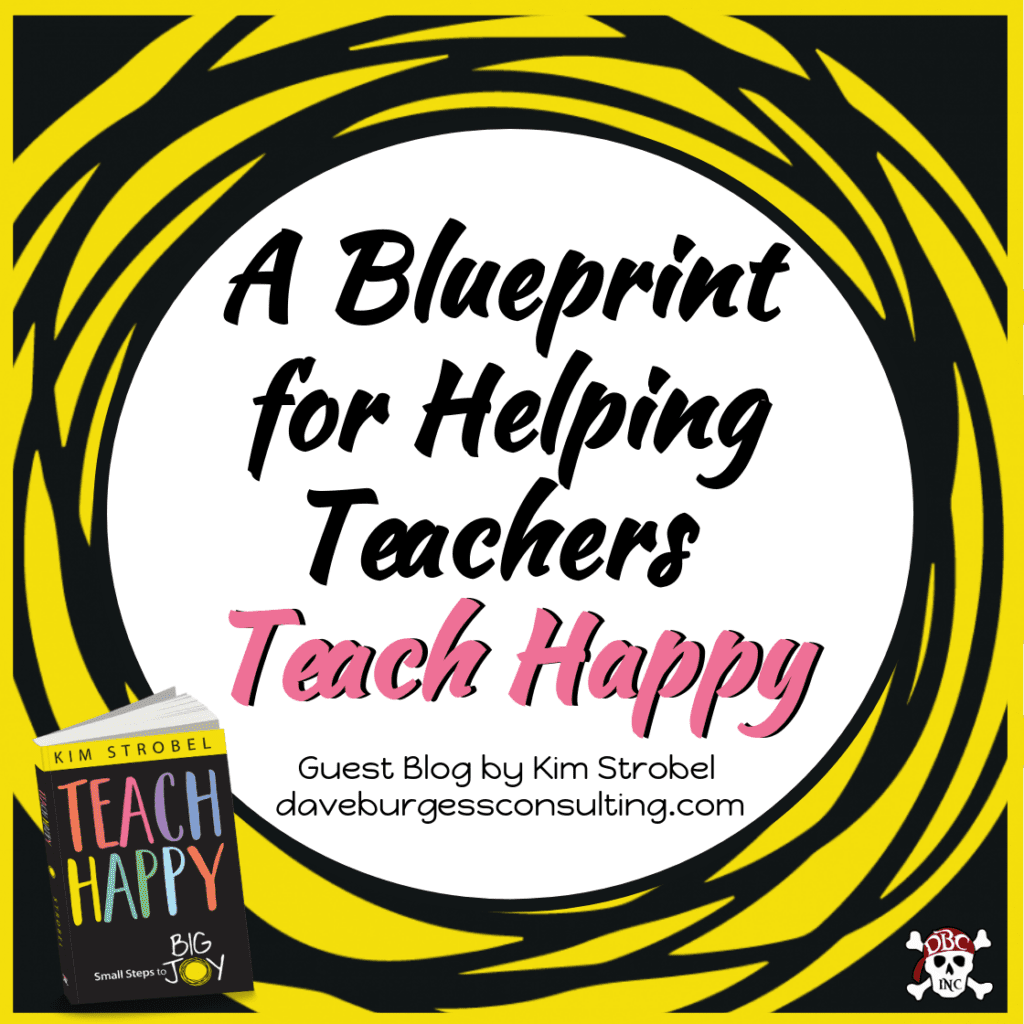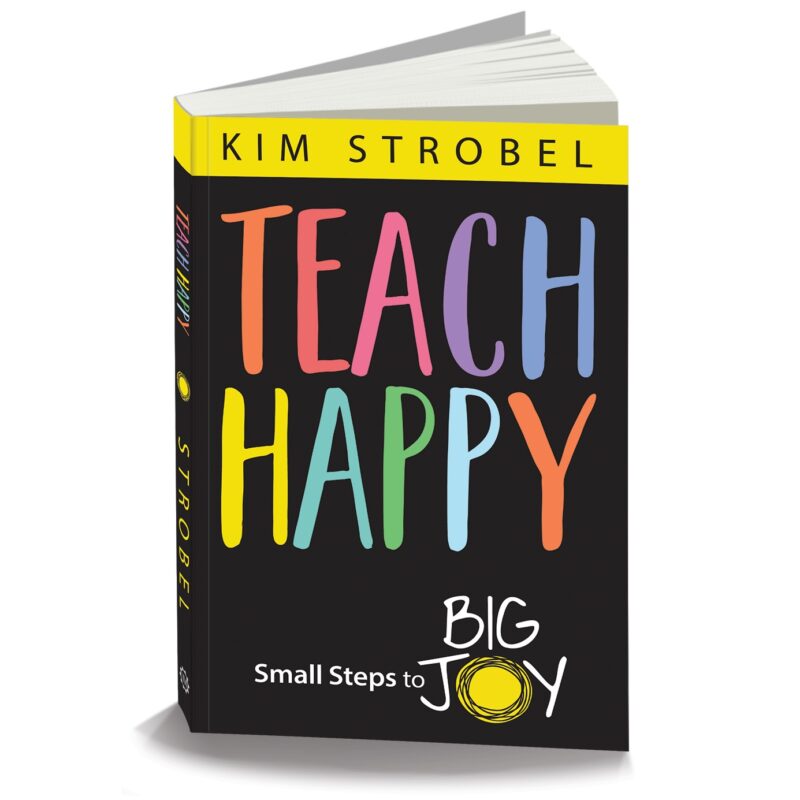Today's guest post is brought to you by a renowned motivational speaker and author of Teach Happy: Small Steps to Big Joy, sought after by schools, businesses, and organizations worldwide--Kim Strobel! With her powerful message about the impact of happiness on well-being and the pursuit of fulfillment, she traverses the globe, sharing her insights. Kim specializes in empowering educators and professionals, equipping them with the necessary tools and strategies to shift their mindsets, reclaim their happiness, reignite their passion, and lead with purpose.
Drawing from her extensive background as a teacher and curriculum director, Kim’s ultimate aim is to inspire her audience. Through her engaging talks, she presents captivating research, heartwarming anecdotes, and practical steps for achieving life-altering results.
In addition to her professional pursuits, Kim is a devoted animal rescuer, having rescued 187 dogs. She is also an avid runner and has an unwavering love for life.
Wow! What a powerful and influential woman in education!
Take it away, my friend!
Guest Post
Writing my book Teach Happy: Small Steps to Big Joy has been my baby in the making for the last ten years. As I’ve worked with thousands of teachers across the country, I see the toll this profession is taking on them. My heart has been heavy for a long time, and I decided it was time to use my own struggles as a human being, educator, and school leader to create the blueprint that helped me get a whole lot happier in every area of my life.
The happiness habits and strategies I teach in the book have elevated every area of my life. My wish is that as teachers, we can begin to nourish our emotional well-being and learn that we, too, deserve to have space and ease as we go along this journey of teaching.
3 Tips to Getting Started on Your Happier Life
1. Learning to make your happiness a priority in your life is a game-changer.
When you learn that it’s healthy to prioritize your happiness, every other area of your life starts to shift with positive momentum. Research shows that when we put our happiness first, only then do we shift the levers in every other area of our lives.
The problem is that we haven’t been taught this; in fact, we are taught that prioritizing our happiness is frivolous, self-centered, and selfish. We’ve been trained that everyone else’s needs matter more than ours: our students, our own children, our, etc.
Teachers are sacrificing everything from their personal time to their sanity. Worst of all, this extra work and worrying doesn’t guarantee the results we want to see. In fact, it often leads to major burnout and constant feelings of overwhelm.
I believe it’s time to stop the hustle culture that is driving many of our behaviors and actions.
2. Only 10% of our long-term happiness comes from our external circumstances.
I know this is a hard-to-swallow piece of research, but it’s highly proven. Only about 10 percent of our long-term happiness comes from our external circumstances like our gender, age, ethnicity, where we grew up, and significant events that shaped our childhood, adolescence, and adulthood.
The same goes for significant events in our adult lives like our job, marital status, income, and living situation. But, as weighty as some of these events are, studies suggest that they account for only a small percentage of our happiness—just 10 percent!
The problem is, if you’re like me, you let some circumstances and some people steal way more than 10% for far too long. In Teach Happy, I explain how we can recalibrate our brains and learn specific skills that help us this 10 percent.
3. 40% of your happiness is in your control.
Taking control of our own happiness comes down to the 40 percent. It has to do with the thoughts you’re thinking, the actions you are taking, and the behaviors you exhibit.
By being intentional in our daily activities, we can increase our happiness levels.
As teachers, we can establish agency around happiness and emotional health by reframing our thoughts, actions, and behaviors with happiness habits. We can create a happier life—that power is within us. The ability to reprogram our brain, take different actions, and adopt different behaviors is within our reach.
While there are loads of strategies that work on that 40 percent, there are specific happiness habits that yield big-time results. In Teach Happy: Small Steps to Big Joy, I explain the habits, WHY they work, and HOW to make them a part of your happiness practice. These are the small steps I use in my own life that have helped me get a lot happier, regardless of what is going on in the other parts of my life.
As educators, we deserve to have space and ease as we go along this journey of teaching—and as we live out the equally important other parts of our lives. We may need some grace to learn that we matter, too, but my hope is that the science, strategies, and tools in Teach Happy will help others learn how to reach and capture more happiness along the way.
- Kim Strobel
Thank You, Kim!
Thank you, Kim! What an outstanding post!
Be sure to follow Kim on Twitter & Instagram--simply click the links. You are sure to be inspired by her outstanding content!
Also, if you haven't read Teach Happy, you are really missing out! Grab your copy HERE! And be sure to visit her website for even more AWESOMENESS strobeleducation.com/ . There is even a book study page! Check it out; scroll to the bottom of the page right HERE. Thanks again, Kim.
Teach Happy
Serving Your Students Starts with Showing Up for Yourself
More info →





